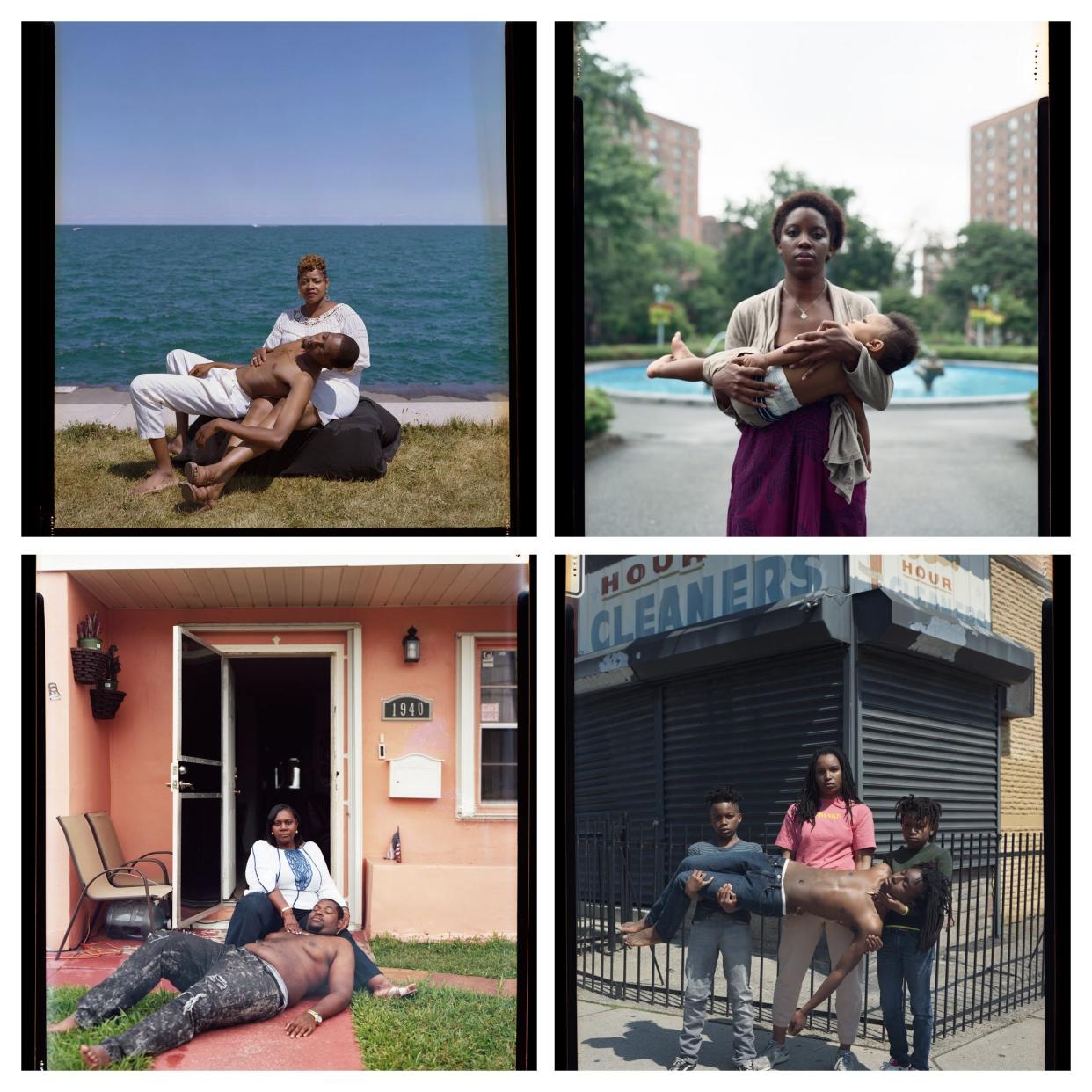Free-speech groups demand Daytona State College reconsider provocative art photo exhibit

Three free-speech groups are demanding Daytona State College again invite an artist to show a provocative photography exhibition that the school had canceled just a few weeks before it was scheduled to open.
The work, "Stranger Fruit" is a collection of photographs showing Black mothers posed with their sons reminiscent of Michelangelo’s La Pietà, a historic sculpture of Mary cradling her crucified son Jesus. Artist Jon Henry said the images are intended to be a reflection upon police killings of young Black people.
For more than a year, curators at DSC's Southeast Museum of Photography planned a three-month exhibit of "Stranger Fruit," which was to have opened on Jan. 11. But in mid-December, just as the college was about to close for the holiday break, museum Director Whitney Broadaway contacted Henry and told him the exhibit was being canceled.
College officials said the cancelation was due to an HVAC unit leaking, causing damage to the gallery.
But Henry shared a letter he had received anonymously suggesting the damage wasn't the real reason and that it had more to do with discomfort on the part of DSC President Tom LoBasso about an exhibit that “did not align with the school’s values” and might “call negative attention to the college and conflict with their educational program on training future police officers.”
Erin Gordon, the museum director who preceded Broadaway, initially invited Henry to show "Stranger Fruit," and secured grant funding for it. She and others expressed skepticism at DSC's explanation.
The college provided extensive records related to the matter, including hundreds of pages of emails, requisitions for work, and bills for repairs on Building 1200, which houses the museum. The records show there was some damage that had occurred some three months before the cancelation, but they raise questions about the extent of the damage and whether the exhibition could have proceeded.
The National Coalition Against Censorship reported hearing from a former museum employee − in addition to the letter Henry received and another former employee who spoke to the publication Hyperallergic − that there had been no leaks in the gallery where Henry's work was to be shown.
NCAC, the American Civil Liberties Union of Florida, and the Foundation for Individual Rights and Expression jointly wrote LoBasso in support of "Stranger Fruit."
"The fact that the exhibition was indefinitely canceled − rather than merely shortened, relocated or rescheduled − lends credence to allegations that the real motive for the cancelation was the show's content," the letter states. "Indeed, exhibitions across the country are routinely being purged of any content that reflects issues of police violence. Moreover, according to [the museum's] website and social media accounts, it appears that other exhibitions opened or remained on view in the same building between January and April 2023."
The letter quotes the college's "Values" statement on the DSC.edu website: "Diversity of people, thought and expression provides energy and vitality for the learning process."
"The college also expresses support for 'academic freedom and intellectual pursuit,' thereby promising students will be introduced to a diverse range of contrasting and competing ideas," the letter continues. "Henry's exhibition should be considered relevant for DSC students − and especially those enrolled in the college's police academy − precisely because it grapples with ongoing issues that plague the field of policing and society at large."

Chris Thomes, Daytona State's director of marketing and communications, wrote in an email Monday the college will "have no further comment" on the exhibit's cancelation, the organizations' letter and another recent development: the departure of the museum director.
Broadaway resigned from the college on Aug. 31, the same day a News-Journal report about the "Stranger Fruit" cancelation was published online. She did not cite a reason for her resignation, but posted on LinkedIn she is starting a new job as collections manager for the City of Las Cruces Museum System in New Mexico.
Her last day at Daytona State was to have been Friday. A city official in Las Cruces said she did not have a phone number for Broadaway and her new email does not appear to be set up.
"I am still passionate about the continued success of the museum and its staff, and plan on doing everything I can to ensure a smooth transition to a new director," Broadaway wrote in her resignation letter to the college.
This article originally appeared on The Daytona Beach News-Journal: DSC urged to show art photos that highlight police killings of Blacks

